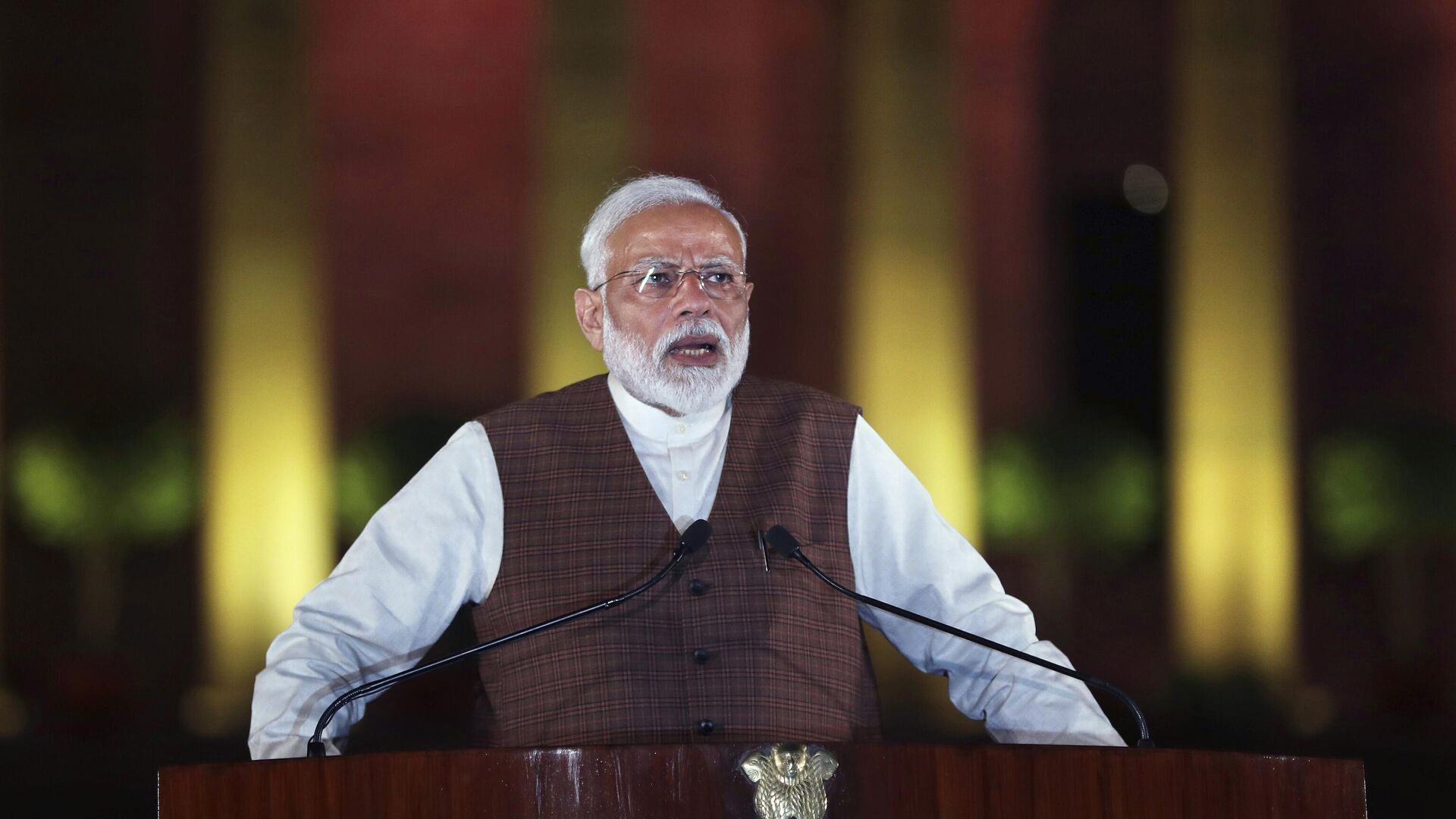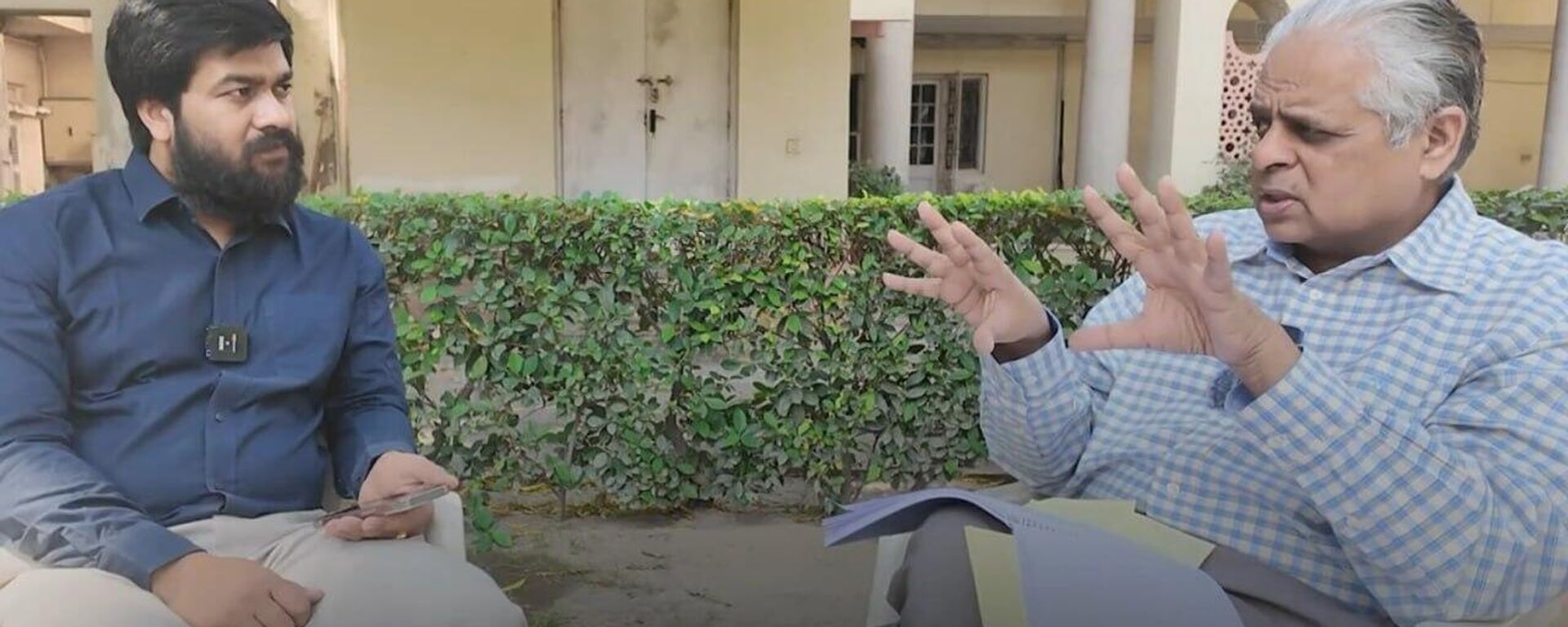https://sputniknews.in/20250330/indias-economic-rise-and-cracks-in-western-trade-order-insights-from-pranjal-sharma-8924925.html
India's Economic Rise and Cracks in Western Trade Order: Insights from Pranjal Sharma
India's Economic Rise and Cracks in Western Trade Order: Insights from Pranjal Sharma
Sputnik India
Pranjal Sharma offers a deep dive into India’s unique economic evolution and critiques the imbalance in the global trade and investment order shaped by the West
2025-03-30T12:32+0530
2025-03-30T12:32+0530
2025-03-31T12:49+0530
sputnik opinion
india
rising economies
indian economy
narendra modi
developing nations
collective west
https://cdn1.img.sputniknews.in/img/07e8/01/0c/6177931_0:0:3072:1728_1920x0_80_0_0_995fc707f91a011e45231183704ef30d.jpg
India’s economic trajectory stands apart from most other nations due to its federal structure and long-standing democratic tradition, Sharma said.Challenging the Western-Centric Trade Order The global trade and investment frameworks were constructed to benefit legacy economies by securing market access in developing nations, while simultaneously restricting reciprocal access for those same nations in Western markets.The intent, he argued, was to ensure that emerging markets remained consumers — not producers.
https://sputniknews.in/20250330/interview-with-lieutenant-general-raj-shukla-europes-economic-decline--india-russia-powerplay-8923707.html
india
Sputnik India
feedback.hindi@sputniknews.com
+74956456601
MIA „Rossiya Segodnya“
2025
Sputnik India
feedback.hindi@sputniknews.com
+74956456601
MIA „Rossiya Segodnya“
News
en_IN
Sputnik India
feedback.hindi@sputniknews.com
+74956456601
MIA „Rossiya Segodnya“
Sputnik India
feedback.hindi@sputniknews.com
+74956456601
MIA „Rossiya Segodnya“
india’s economic rise, western trade order, global trade dynamics, pranjal sharma’s insights, india’s trade strategy, shifts in global supply chains, decoupling from china, india’s manufacturing growth, geopolitics of trade, trade protectionism and india, multilateral trade agreements, western economic policies, india’s role in global trade, trade blocs and india, economic nationalism, reshaping global markets, india’s export-driven growth, foreign investment in india, india’s digital economy, western trade fragmentation.
india’s economic rise, western trade order, global trade dynamics, pranjal sharma’s insights, india’s trade strategy, shifts in global supply chains, decoupling from china, india’s manufacturing growth, geopolitics of trade, trade protectionism and india, multilateral trade agreements, western economic policies, india’s role in global trade, trade blocs and india, economic nationalism, reshaping global markets, india’s export-driven growth, foreign investment in india, india’s digital economy, western trade fragmentation.
India's Economic Rise and Cracks in Western Trade Order: Insights from Pranjal Sharma
12:32 30.03.2025 (Updated: 12:49 31.03.2025) In a thought-provoking interview with Sputnik India, economic analyst and author Pranjal Sharma offers a deep dive into India’s unique economic evolution and critiques the imbalance in the global trade and investment order shaped by the West
India’s economic trajectory stands apart from most other nations due to its federal structure and long-standing democratic tradition, Sharma said.
"In some ways, you cannot compare India to any other country in the world," he said, emphasizing that while democracy has provided stability, it has also posed certain challenges to economic growth.
Challenging the Western-Centric Trade Order
The global trade and investment frameworks were constructed to benefit legacy economies by securing market access in developing nations, while simultaneously restricting reciprocal access for those same nations in Western markets.
“When growth economies wanted market access in these legacy economies... all kinds of barriers had been set up,” Sharma pointed out.
The intent, he argued, was to ensure that emerging markets remained consumers — not producers.


